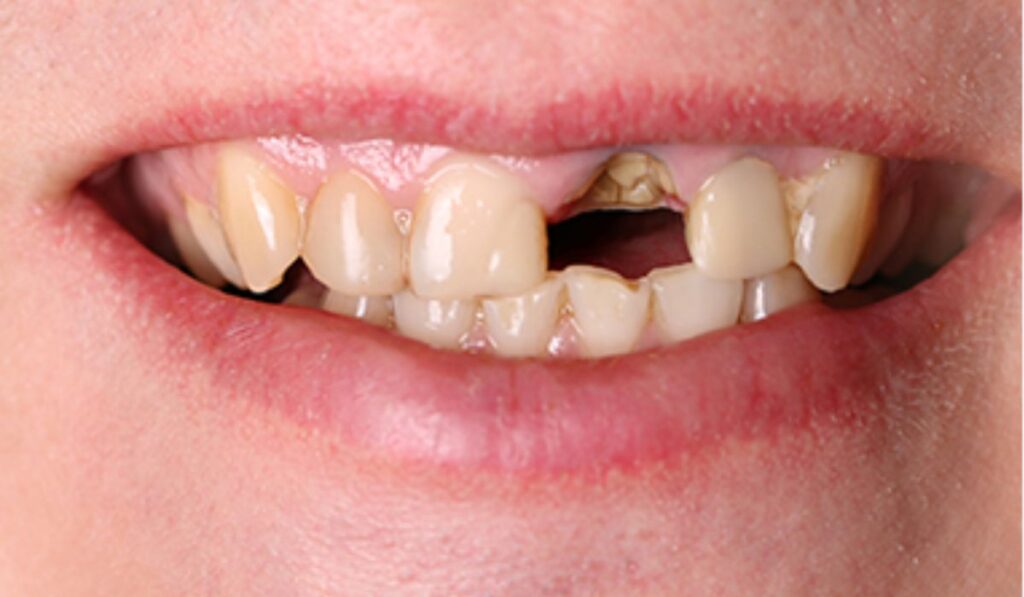Introduction
A root canal is a common dental procedure that saves teeth from severe decay or infection. After the root canal is complete, many dentists recommend placing a crown to protect the tooth. But how long can a root canal last without a crown? Understanding the importance of crowns and the risks of delaying their placement is crucial. In this article, we will discuss the role of crowns, the risks of leaving a tooth uncrowned, and how long your tooth can survive without one.
What is a Root Canal?
A root canal is a dental procedure that treats infection or decay deep inside the tooth, targeting the pulp. During the treatment, the dentist removes the infected tissue and cleans the canals of the tooth. Once the infection is cleared, the canals are sealed to prevent further damage.
While a root canal can save the tooth, the procedure often leaves the tooth weaker than before. Since the tooth is no longer alive, it becomes brittle and more prone to fractures. This is why most dentists recommend placing a crown over the tooth for added protection. However, some patients may delay getting a crown, putting the tooth at risk.
Why Are Crowns Important After a Root Canal?
Crowns play a critical role in protecting teeth after a root canal. The root canal procedure leaves the tooth hollow and more fragile. A crown acts as a shield, covering the entire tooth and preventing cracks or breaks. Without this added layer of protection, the tooth may not be able to withstand the pressure from everyday activities like chewing.
Crowns also help restore the tooth’s function and appearance. After a root canal, the tooth may be discolored or misshapen. A crown can give the tooth a natural look, matching the color and shape of surrounding teeth. Additionally, crowns provide structural support, which prevents further damage to the tooth and ensures it lasts longer.
Risks of Leaving a Root Canal Without a Crown
Leaving a tooth uncrowned after a root canal comes with several risks. The biggest risk is that the tooth may break or crack. Because the tooth is no longer living, it becomes brittle, and any force placed on it can lead to damage. If the tooth fractures, it may need to be extracted, undoing the efforts of the root canal procedure.
Another risk is reinfection. Even though the canals are cleaned and sealed during the procedure, an uncrowned tooth is more vulnerable to bacteria. This can lead to another infection, requiring further treatment. In some cases, the tooth may become reinfected to the point that it cannot be saved, leading to tooth loss.
How Long Can a Root Canal Last Without a Crown?
The amount of time a root canal can last without a crown varies depending on the individual’s oral health, the location of the tooth, and the pressure it endures. Generally, teeth can last a few weeks to several months without a crown. However, delaying the crown increases the likelihood of damage or complications.
Teeth in the back of the mouth, such as molars, are especially prone to fractures because they experience more pressure from chewing. Front teeth may last longer without a crown since they are not exposed to the same level of force. Still, it is highly recommended to place a crown as soon as possible to ensure the long-term success of the root canal.
What Happens if You Wait Too Long to Get a Crown?
Waiting too long to get a crown after a root canal can have serious consequences. If the tooth breaks or cracks, the damage may be irreversible. In these cases, the tooth may need to be extracted, and a dental implant or bridge may be required to replace it.
Additionally, if the tooth becomes reinfected, you may need another root canal or even an extraction. The longer you wait, the higher the chances that bacteria will enter the tooth and cause further issues. Getting a crown promptly after the root canal helps prevent these complications and ensures the tooth stays functional and healthy.
Cost Considerations: Delaying a Crown

Some people delay getting a crown due to cost concerns. Crowns can be expensive, especially if you don’t have dental insurance. However, delaying a crown can lead to even higher costs down the road. If the tooth fractures or becomes reinfected, you may need additional dental work such as another root canal, extraction, or dental implant.
Investing in a crown soon after the root canal can save you money in the long run. It protects the tooth from future problems and avoids the need for more costly procedures. Many dental offices also offer payment plans to help patients afford crowns and other dental treatments.
Signs That You Need a Crown Immediately
There are several signs that indicate you need a crown immediately after a root canal. If the tooth feels weak or tender, it may be at risk of cracking. Any pain or discomfort when chewing could also signal that the tooth is vulnerable to damage.
Additionally, if the tooth looks discolored or misshapen, a crown can help restore its appearance. If you notice any of these signs, it’s important to consult with your dentist right away. Acting quickly can prevent more serious problems and ensure the success of your root canal treatment.
Long-Term Care for a Tooth After Root Canal and Crown
Once you’ve received a crown, taking care of the tooth is essential for its long-term success. Practicing good oral hygiene, including brushing and flossing, helps prevent future decay or infection. Regular dental check-ups also allow your dentist to monitor the crown and ensure it remains in good condition.
Avoid biting down on hard objects or using your teeth as tools, as this can cause the crown or underlying tooth to crack. With proper care, your tooth and crown can last for many years, allowing you to enjoy a healthy, functional smile after your root canal.
Conclusion
A root canal can save your tooth from decay, but without a crown, the tooth remains vulnerable to damage and infection. While the tooth may last for a few months without a crown, delaying the placement puts it at risk of breaking or becoming reinfected. For the best long-term outcome, it’s crucial to get a crown soon after the root canal. This will ensure the tooth remains protected and functional for many years.
FAQs
1. How long can you wait to get a crown after a root canal?
You can wait a few weeks to a few months, but it’s recommended to get a crown as soon as possible to avoid complications.
2. Can a tooth break after a root canal without a crown?
Yes, a tooth is more likely to break or crack after a root canal if it’s not protected by a crown.
3. Are crowns necessary after a root canal?
While not always mandatory, crowns are highly recommended to protect the weakened tooth after a root canal.
4. Can you get a root canal and crown at the same time?
In some cases, a temporary crown may be placed immediately after the root canal, but the permanent crown typically requires a separate visit.









































